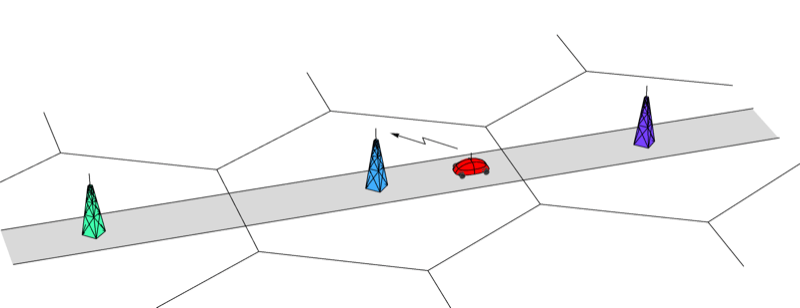Channel capacity, transmission, multiplexíng,
Antennas, wave propagation, spectrum, fading,
Digital modulation, spread spectrum FHSS, DSSS,
Multiple access methods FDMA, TDMA, CDMA, OFDMA,
Error detection and error correcting codes,
Wireless networks using standards for cellular mobile broadband systems, wireless LAN, sensor networks and PAN,
Environmental aspects, social, market and economic factors concerning wireless systems.
To pass, the student should be able to:
- describe, at a general level, how fading (variation of the field strength of a radio signal) in a radio channel influences link-performance in wireless communication systems.
- dimensioning a radio link in terms of range and channel capacity based on given conditions
- estimate the capacity of a radio network and describe the relation between system capacity, deployment strategy, cost and available spectrum
- describe structure and actors on a telecom market
- explain how multiple access-methods works
- describe at a general level system architecture for different existing systems for wireless communication
- explain, in a wide sense, the environmental and sustainability challenge of the ICT-industry. (Electromagnetic radiation, energy, limited natural resources, environmentally harmful effects)
For higher grades, the student should furthermore be able to:
- explain wave propagation mechanisms and make judgments based on how these mechanisms affect the wave propagation
- Solve a general design problem for the radio links and radio networks by using simple formulas
- In a telecom market, be able to explain, the main actors business model and how the make money
- explain, at a general level, the functionality of different existing systems for wireless communication and compare their capacity, performance and environmental aspects
- Be able to judge the economic and social advantages of providing affordable telecommunication in relation to its environmental effects.
